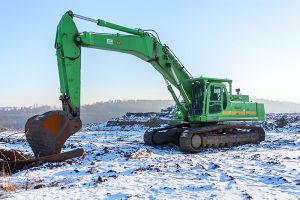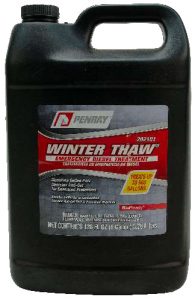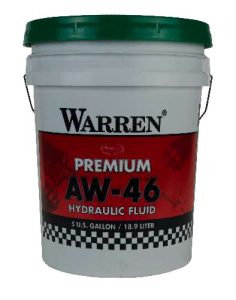When temperatures drop in the winter, your vehicles and the equipment in your shop or fleet need a little extra TLC. Following is a generalized list of lubricants/fluids that should be on hand and in good supply during months when freezing temperatures are in the forecast.
Keep in mind that each piece of equipment will have its own maintenance tips and precautions that you should follow. Lubricant/fluid use should comply with your owner’s manual and/or manufacturer’s specifications.
According to Mark Betner of Citgo Petroleum Corp., on fleetowner.com, the most important concern is that “the lubricants offer the proper viscosity to handle low ambient.”
- FUEL STABILIZER: When temperatures fall below 15 degrees F, you want to add an anti-gel agent, such as Pow-R Plus Winter Diesel Fuel Treatment or Penray Winter Thaw, to your diesel fuel. Anti-gel agents help prevent ice buildup in your fuel lines and filters.

Anti-gel agents help prevent ice buildup in your fuel lines and filters.
Fuel stabilizer also should be added to any gas stores sitting over the winter. Remember to drain the tanks on any small-engine equipment that will be stored.
- ANTIFREEZE: The key to antifreeze is getting the right mix. An antifreeze tester (floating ball or dial indicator) can help determine if your mixture is correct. Water-to-antifreeze ratios may vary depending on the equipment. It’s best to use distilled water in the mix.
Follow the ratio suggested in your owner’s manual. You can buy full-strength or a premixed, 50/50. You need to get the mix right, or you risk the coolant freezing in your engine… and that’s the end of your engine. In extreme temperatures, mixtures of 60/40 or 70/30 may be needed.
Antifreeze also keeps your cooling system from rusting. Antifreeze for heavy-duty equipment may include supplemental coolant additives that help protect against rust, scale and corrosion. Antifreeze for RVs can help protect potable water systems.
Periodically flush, drain, and test your system, and not just during the winter.

- STARTING FLUID: Use through sub-zero degree weather in cars and tractors, and in small engines (such as those in snowblowers, ATVs, generators, etc). It’s especially useful when an engine block heater isn’t available.
The diethyl ether in starting fluid can give a cold engine a kick-start and help get fuel to the combustion cylinder quickly. Only a small amount should be used, and be especially careful if using with a diesel engine as it may pre-ignite.
- HYDRAULIC FLUID: Use hydraulic oil with a lighter viscosity when temperatures are at freezing point. Check with the manufacturer’s recommendations to see which oil is best for winter use. Know what your fluids and oil are rated to avoid pump/engine stress.
Top off the gas tank of equipment that will be used continuously through the cold months to avoid condensation.
- GEAR OIL & GREASE: On the farm, at home and in the shop, grease and oil can help keep moisture out of parts, and prevent corrosion and seizing that may occur in winter. Be well-stocked with gear lube and mineral gear oil, lithium grease, synthetic grease, and multipurpose grease. Check your equipment’s manual for lubrication recommendations, especially for proper grease consistency.
By the way, did you know there’s a National Lubricating Grease Institute? Learn more here.
- WINDSHIELD WASHER FLUID: With salt and dirt getting kicked up from the road throughout the winter months, windshield washer fluid is crucial. You’ll likely use more in winter than any other time of year. You’ll want a version that has antifreeze in the mix. There’s a special winter version rated for -34 degrees (yellow colored). The blue washer fluid is usually rated for 5 degrees. If you don’t use the correct fluid, it could freeze and your washer solvent reservoir might crack.
Check your supply regularly, and don’t compromise your visibility.
- CAR WASH & WAX: Wash your vehicles regularly throughout the winter to remove any dirt and salt, using products such as Blue Coral or Meguiar’s. Use a protective product such as Turtle Wax Ice to protect vehicles from dirt and salt that can damage the paint. Most especially, do not let road salt build up on your vehicles.
Other items to have on hand during winter months: Ice scraper, engine block heaters, tow ropes, winter gloves, emergency lighting and flashers, battery chargers and door-lock lubricant/spray.
